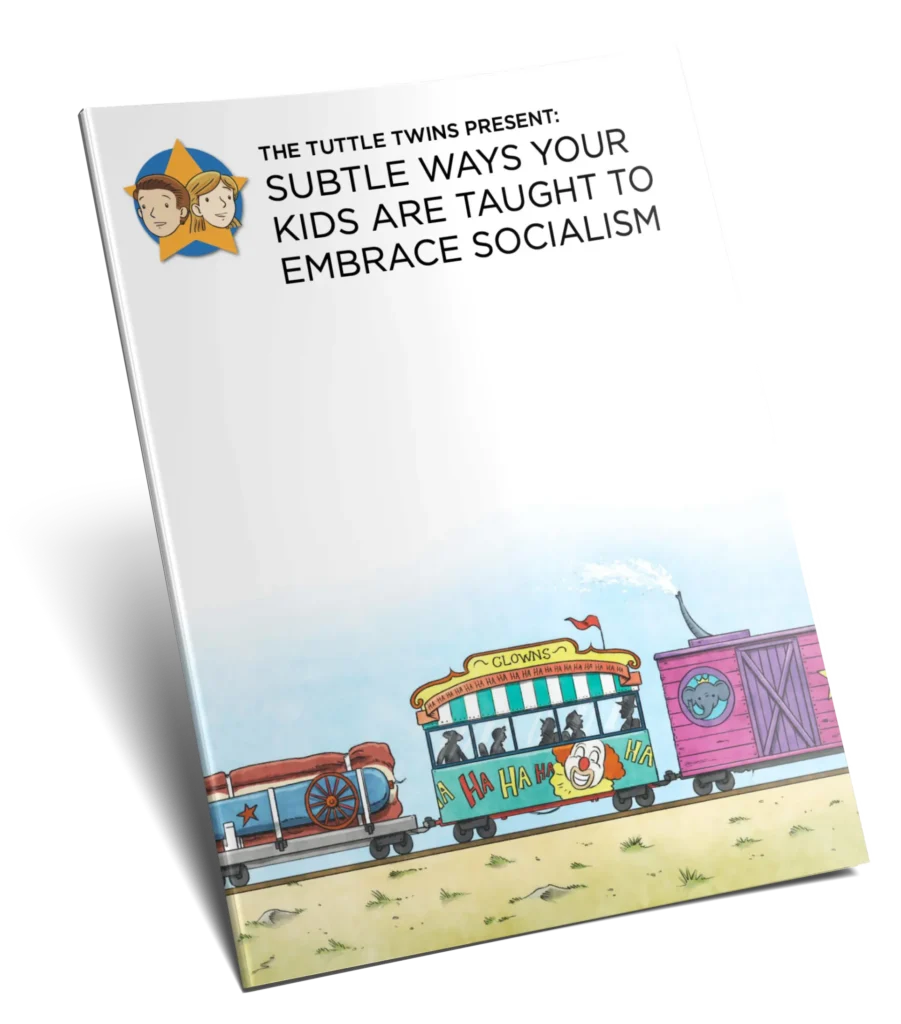
There’s something to be said for throwing on your lucky jersey and screaming with thousands of other fans in support of your team. Maybe your dad, and even your grandad, loved your team too. Maybe your love for your team is less about their ability to win and more about the memories all tied up in those sights and sounds and colors and smells. You spot a stranger in your team’s garb, and you’ve got an instant friend—a bond before any words are exchanged.
Team sports, although not for everyone, can make us feel like we are part of something bigger than ourselves. When they win, we win, and so does everyone else in our fandom. When they lose, we lose. And it stings for a bit, but at least we are in good company as we nurse our collective wounded pride. It feels good to belong.
But problems arise when we can’t leave our team mentality at the stadium or in the sports bar or in the living room in front of the big screen. Have you seen those clips of talk show hosts or media personalities out on the street questioning people about the policies of certain politicians?
 They’ll stop someone and tell them that a particular policy belongs to their guy—and the person praises the policy. And then the joke is on them, because it was actually the guy they “hate” whose policy was quoted. If their guy isn’t our guy, we all laugh at what an idiot “that guy’s” supporters are. If they like the same guy as us, we largely ignore the whole thing and remark on how television has turned to garbage.
They’ll stop someone and tell them that a particular policy belongs to their guy—and the person praises the policy. And then the joke is on them, because it was actually the guy they “hate” whose policy was quoted. If their guy isn’t our guy, we all laugh at what an idiot “that guy’s” supporters are. If they like the same guy as us, we largely ignore the whole thing and remark on how television has turned to garbage.
The problems with our government aren’t really about which team is in power. They are almost entirely about the tendency of both parties to continue to expand on the other’s terrible policies and practices, almost all of which end up limiting our rights, costing us money, and delivering terrible unintended (and many intended!) consequences.
In the early 1940s, F.A. Hayek wrote The Road to Serfdom to warn people “of the danger of tyranny that inevitably results from government control of economic decision-making through central planning.” We may have awarded him a Nobel Prize in economics, but we did a terrible job heeding his warning.
A recent article at FEE took a look at central planning and its unintended consequences with this piece focusing on what’s called The Cobra Effect. Basically, Delhi, India had a terrible cobra problem. As part of the government effort to eradicate the deadly menace, a pretty hefty bounty was placed on cobras. Things went really well for awhile; people were making money hunting cobras and the cobra population went into serious decline.
But then there weren’t any more cobras, and people couldn’t keep collecting bounties. So what did they do? They began raising cobras, of course. After awhile the government noticed that despite the streets being cobra-free, they were still paying the same amount in bounties as they had been at the height of the cobra infestation. And so they ended the bounty program. And those raising cobras? Well… they were no longer of any value—and who wants a house full of cobras?—so they simply turned them loose.
In the end, Delhi had a bigger cobra infestation than they did before they began paying bounties. Yay central planning! This situation plays out in hundreds of ways every day (although usually with fewer cobras). As FEE notes:
“These examples of unintended consequences aren’t aberrations. Unintended consequences arise every time an authority imposes its will on people. Seat belt and airbag laws make it less safe to be a pedestrian or cyclist by making it safer for drivers to be less cautious. Payday lending laws, intended to protect low-income borrowers from high lending rates, make it more expensive for low-income borrowers to borrow by forcing them into even more expensive alternatives.
Requirements that corporations publicize how much they pay their CEOs in order to encourage stockholders to reduce CEO pay resulted in lesser-paid CEOs demanding more pay. Three-strikes laws, intended to reduce crime, increase police fatalities by giving two-time criminals a greater incentive to evade or even fight the police. The Americans With Disabilities Act gives employers an incentive to discriminate against the disabled by not hiring them in the first place so as to avoid potential ADA claims. Electrician licensing requirements can increase the incidence of injury due to faulty electrical work by reducing the supply of electricians, thereby encouraging homeowners to do their own electrical work.”
 In The Tuttle Twins and the Road to Surfdom, Ethan and Emily learn that when government gives people what they wish for, they often get more than they bargained—a lesson that would benefit a lot of adults these days. It would especially benefit those who have gotten so caught up in being part of a team that they’ve lost sight of their responsibility to protect rights and liberties from overreaching government, regardless of party.
In The Tuttle Twins and the Road to Surfdom, Ethan and Emily learn that when government gives people what they wish for, they often get more than they bargained—a lesson that would benefit a lot of adults these days. It would especially benefit those who have gotten so caught up in being part of a team that they’ve lost sight of their responsibility to protect rights and liberties from overreaching government, regardless of party.
I love thinking about all the good that could come from a whole generation of kids growing up viewing their government as public servants and not partisan superstars. I think books like Road to Surfdom will help. There aren’t any cobras in our book, but there is a beachside banana stand! 😉
— Connor

